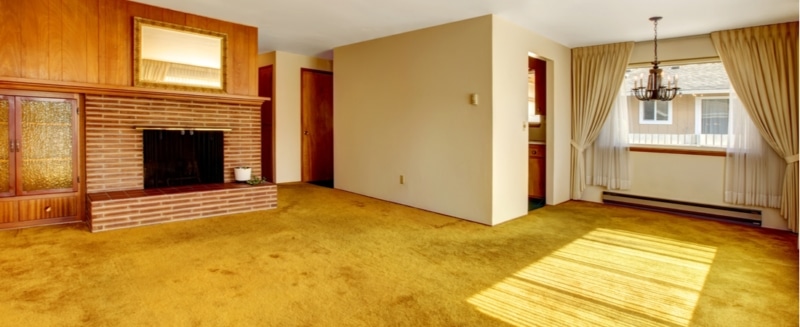How to decide if you should fix up a home or sell “as is” depends on these 8 issues that sellers should consider before putting the home on the market.
We recently received a letter from a woman who was selling her late sister’s home. She said the home was in bad shape, in a declining neighborhood, and she wondered whether the family would do better by fixing up the home or selling it in “as is” condition. There are apparently eight heirs, and no clear consensus on how to move forward.
We focused our answer on the question of who actually owned the property because the person who inherits the property would drive the decision-making. Did that person have the time or cash available to fix up the property? Is the inheritance contested? Are the eight people who will inherit the property all be involved in the decision-making? And, how much debt does the estate owe, since any proceeds would immediately have to pay off outstanding debts before being distributed to the heirs.
Those issues alone would be enough to prompt an “as is” sale in many families.
Fix Up A Home or Sell “As Is” Depends On The Answers to These Questions
But some readers felt we never fully answered the question of whether it’s better to sell in “as is” condition, perhaps to a developer who might tear down the property, or invest the cash to get the property up to code.
It’s a question almost every seller faces, so, if you’re hoping to sell this year, consider the following issues:
- Who is successful at selling homes like yours in your neighborhood? Before you make the decision on fixing up your home or selling it in “as is” condition, interview a number of locally successful agents to find out more about the neighborhood. If you don’t know who is successful, start by looking for the companies that seem to list the most properties in your neighborhood. Then, call and talk with the managing broker about your home and the neighborhood and ask for an introduction to an agent who is locally successful.
- How quickly are homes selling? This is the key question to understanding the condition of your neighborhood real estate market. Ask various agents: Are offers being generated in minutes or do sellers have to wait six to nine months for a single offer? The key number to ask about is the “average days on market.” If the average days on market is less than 45, you’re working with a very fast market. If homes are sitting for longer than 90 days, it’s a neutral to slow market.
- What types of homes are selling? Once you’ve established how quickly the market is moving, it’s important to understand what types of homes are selling and which are sitting. Ask for “comps,” which are recent sales of homes that the agents think are comparable to yours and take a deep dive when looking at the listing descriptions. (Due to some recent changes in how websites list properties that have recently sold, you may not be able to see photos of homes that have already closed. You should spend more time chatting the agents about these homes, so you have an understanding of what condition they were in when they were for sale.)
- How does your home compare to those that are selling? It doesn’t matter what the identical home would sell for in a different neighborhood because you can’t move your house. So if, like our correspondent, you find your home is located in a declining neighborhood, you’re less likely to get more for the property whether you’re selling in “as is” or top-notch condition. If homes that are renovated or are at least updated are selling and homes in “as is” condition are sitting, you may have your answer – particularly if you hope to sell quickly. But if you live in a gentrifying neighborhood, where property prices are rising, developers might be looking for homes to renovate and flip for a quick profit. In that case, you could probably get a better multiple for doing a moderate upgrade yourself (provided you have the cash) but could still sell quickly in “as is” condition. Now, dig in a little deeper.
- How much fixing up will you have to do? Ask the agent if your home would sell for more if fixed up and what the agent thinks you should do to improve both the home sale timeline and ultimate net price you receive. Do you need to do a major or minor remodel of the kitchen and bathrooms or can you get away with spending a few thousand bucks to repaint, replace a few light fixtures, regrout bathroom tiles, and clean the carpet and floors? The agents you interview should be able to give you some help here.
- How much profit can you make? If it turns out that your neighborhood is improving and all sorts of renovated and unrenovated homes are in demand, then, it’s about the price differential: how much more money you could sell your home for if you renovate and will the net profit you earn on those renovations be worth the time, trouble, and risk that things might not turn out as planned? While tough questions to answer, you’re better off facing them now, before you start writing checks.
- Do you really have the time to handle the renovation? Popular “fix and flip” shows make renovating seem easy. And, fast. In most cases, it’s anything but. So you have to be brutally honest with yourself about how much cash you’re willing to put in, what time frame you’re looking at, who you have to hire to either do the work or manage the people who are going to do the work, and a hundred other little details. (Tread carefully if you have a full-time job, a spouse or partner, and small children running around, and no matter what, prepare to be exhausted at the end of it.)
- Do the numbers add up? Understand what your home in “as is” condition would sell for and what it could sell for once it is fixed up. Then, understand exactly what the costs would be to fix up the property, and the cost of carrying the home while you’re fixing it up. (It could take an extra two to three months before you list your home, depending on how long it takes to find the right tradespeople, pick everything out and get started). Sharpen your pencil and then do your best guess as to whether the profit you’ll get are worth the time, energy, and cash you’ll spend to get there.







Leave A Comment